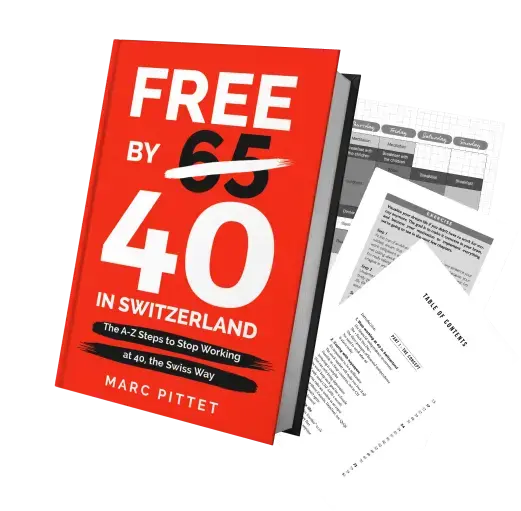Until last week, I forced myself to not hop on the cryptocurrency train as I thought (and still think) that it’s a volatile and risky market. Quite an anti-mustachian thing. And who says volatile says “casino-effect” where one always wants to see if we can beat the market.
Nevertheless, I told myself that I could use the blog as an excuse for experimentation with a small amount defined at the outset, this in order to understand that parallel monetary world which will surely change a lot of things in the coming decades.
So I’m going to invest 1'000 euros (and no more for now!) in a cryptocurrency portfolio, and make a regular report of what I learn as a Swiss investor.
Why this cryptocurrencies’ experiment?
I have several goals with this experiment.
First, I want to better understand this ecosystem and see if it can be a good way to grow one’s money in the long run.
Secondly, I like having concrete data on which to base my reflections rather than speaking in theory only.
Also, having some cash invested will motivate me to stay interested and to regularly document myself on the subject.
Finally, as a personal finance blog, I found it cool to share with you my journey in this parallel world, just as I do with financial independence.
What is a cryptocurrency?
Before going any further, as I know that not everyone is familiar with this subject, I propose to review the definition of a cryptocurrency.
A cryptocurrency (or crypto currency) is a digital asset designed to work as a medium of exchange [on a decentralized network] using cryptography to secure the transactions, to control the creation of additional units, and to verify the transfer of assets. (Source: Wikipedia)
The two important keywords are “digital asset” and “decentralized”.
The first means that it is not something physical like a coin or a note. It has the advantage that it is easier to trade, but also easier to lose.
The second word “decentralized” is important because it brings a new concept that challenges the existence of banks, i.e. the cryptocurrency system no longer needs trusted third parties to ensure the non-corruption of the system.
The 3 most famous cryptocurrencies
The most famous cryptocurrency is Bitcoin (BTC) which you have probably heard about recently, given the latest records of its value. Like CHF or EUR, it is used for transactions.
Another cryptocurrency is Ether (ETH) which aims to create or operate “smart contracts” based on the Ethereum network. The basic purpose of this currency is therefore not to be a currency as we know them, but to allow the creation of a contract between two people without the need for a trusted third party — such as a notary when you buy your property for example.
Finally, the last cryptocurrency I’ll talk about in the next articles is called Litecoin (LTC). It’s a direct competitor of Bitcoin, which therefore plays a role of currency, with more powerful characteristics (from a technical point). This is the second most used currency with Bitcoin.
These 3 crytpocurrencies are the best known and famous. Will they still be there in 10 or 20 years? No idea. This is why I create this experiment so that we have a place to talk about it regularly. There is also a dedicated thread about the topic on our forum.
And the blockchain, what’s that?
The blockchain (or “blockchain” in French) is the technology behind these new cryptocurrencies. It is like a ledger that would be publicly accessible, secure, tamper-proof, and completely decentralized from any financial institution.
Each block in the chain represents several transactions, hence the name blockchain.
Next step
In my following article, I’ll explain you where I opened my cryptocurrency account, my portfolio choice, and how I bought my first digital coins from Switzerland.
As I am completely new to the field, don’t hesitate to share your feedback via the comments below so that we can exchange and learn together.
On your side, did you start to buy some cryptocurrencies?
Note: there is a Coinbase affiliate link in this article. If you use it to open your account there, you won’t notice any difference — but the MP’s blog will get a referral commission. I thank you for this.
As usual, I only write and review things that I trust and/or use in my personal daily life.




